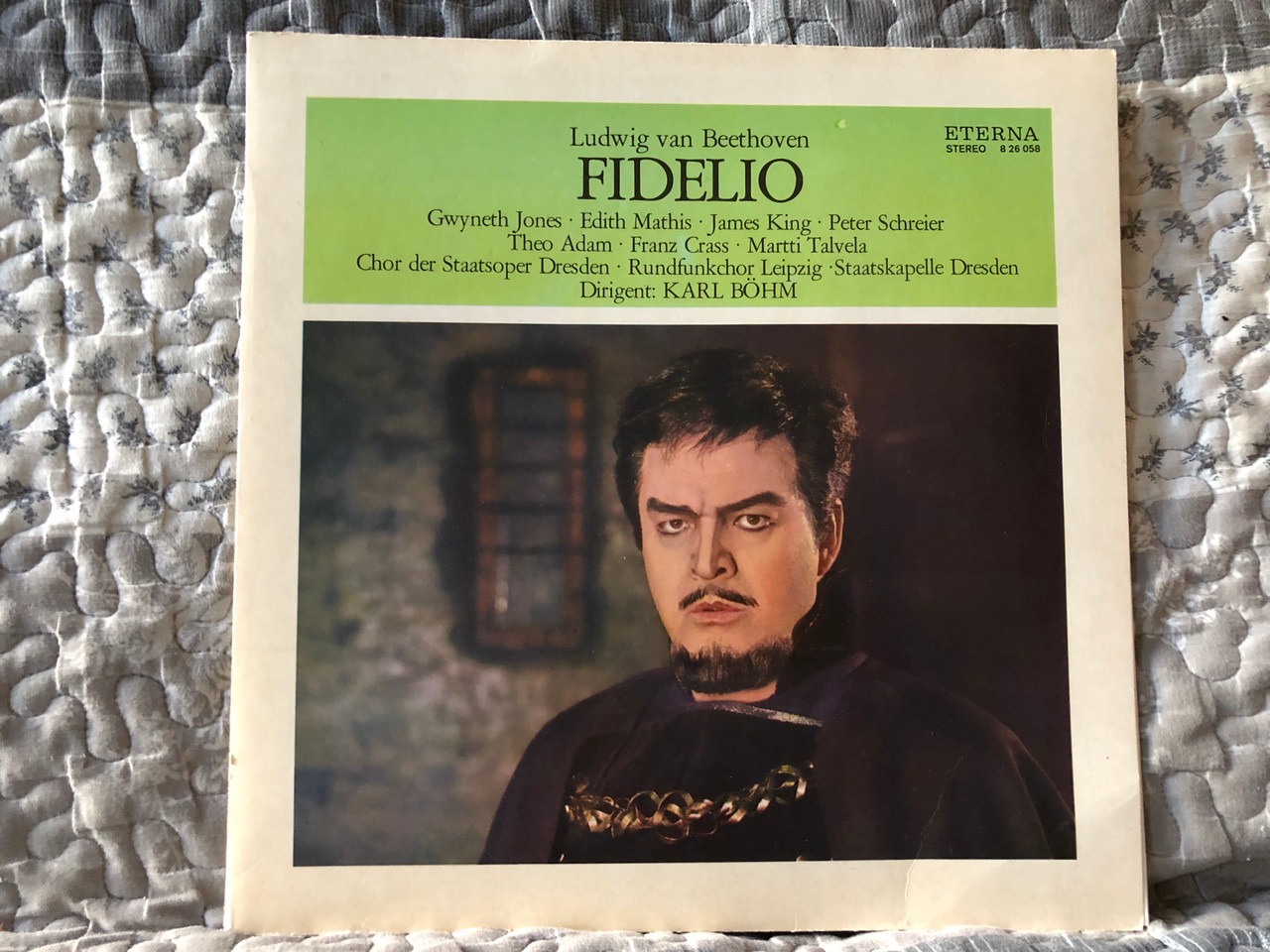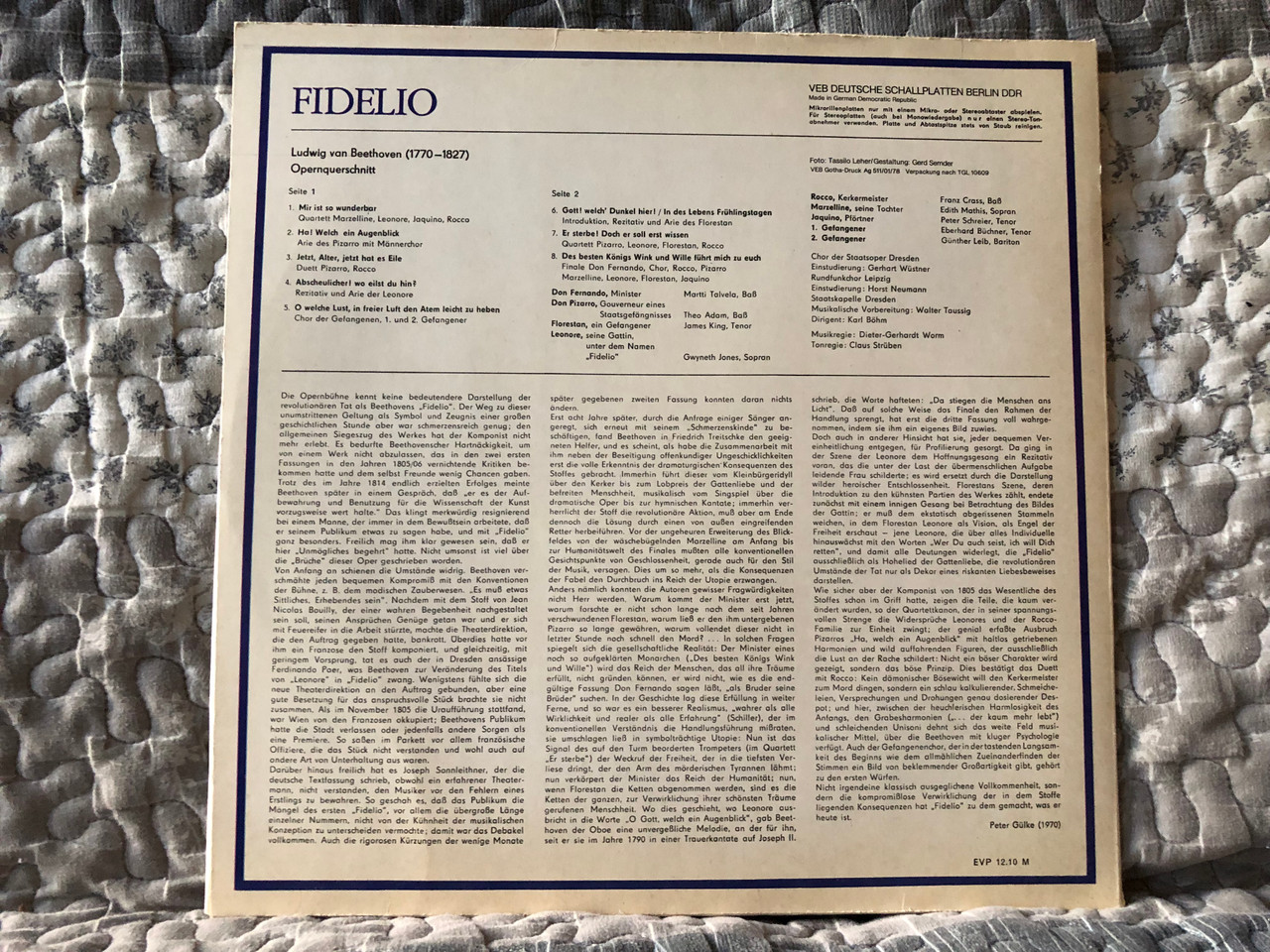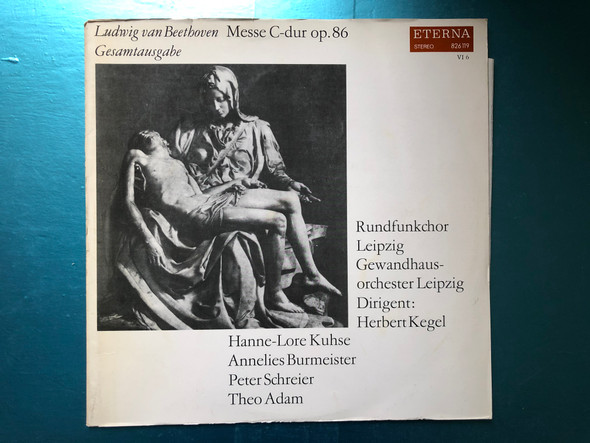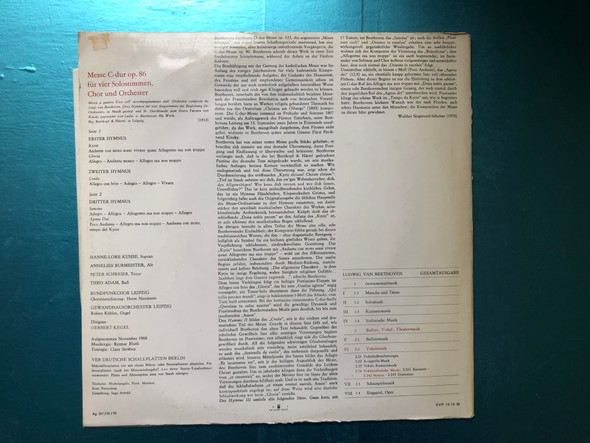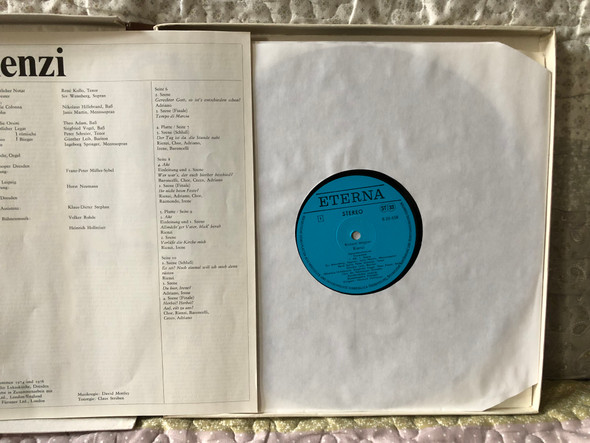Description
Ludwig van Beethoven: Fidelio - Günther Leib, Edith Mathis, James King, Peter Schreier, Theo Adam / ETERNA LP Stereo
8 26 058
Fidelio (/fɪˈdeɪljoʊ/; German: [fiˈdeːlio]), originally titled Leonore, oder Der Triumph der ehelichen Liebe (Leonore, or The Triumph of Marital Love), Op. 72, is the only opera by German composer Ludwig van Beethoven. The libretto was originally prepared by Joseph Sonnleithner from the French of Jean-Nicolas Bouilly. The opera premiered at Vienna's Theater an der Wien on 20 November 1805. The following year, Beethoven's friend Stephan von Breuning rewrote the libretto, shortening the work from three acts to two. After further work on the libretto by Georg Friedrich Treitschke, a final version was performed at the Kärntnertortheater on 23 May 1814. As these libretto revisions were going on, Beethoven was also revising some of the music. By convention, only the final version is called Fidelio, and the others are referred to as Leonore.
The libretto tells how Leonore, disguised as a prison guard named "Fidelio", rescues her husband Florestan from death in a political prison. Bouilly's scenario fits Beethoven's aesthetic and political outlook: a story of personal sacrifice, heroism, and eventual triumph. With its underlying struggle for liberty and justice mirroring contemporary political movements in Europe, such topics are typical of Beethoven's "middle period". Notable moments in the opera include the "Prisoners' Chorus" (O welche Lust—"O what a joy"), an ode to freedom sung by a chorus of political prisoners, Florestan's vision of Leonore come as an angel to rescue him, and the scene in which the rescue finally takes place. The finale celebrates Leonore's bravery with alternating contributions of soloists and chorus.
| Label: | ETERNA – 8 26 058 |
|---|---|
| Format: |
Vinyl, LP, Stereo
|
| Country: | German Democratic Republic (GDR) |
| Genre: | Classical |
| Style: | Opera |
Tracklist:
| A1 | Mir Ist So Wunderbar | |
| A2 | Ha! Welch' Ein Augenblick | |
| A3 | Jetzt, Alter, Jetzt Hat Es Eile | |
| A4 | Abscheulicher! Wo Eilst Du Hin? | |
| A5 | O Welche Lust, In Freier Luft Den Atem Leicht Zu Heben | |
| B1 | Gott! Welch' Dunkel Hier! / In Des Lebens Frühlingstagen | |
| B2 | Er Sterbe! Doch Er Soll Erst Wissen | |
| B3 | Des Besten Königs Wink Und Wille Führen Mich Zu Euch |
- Baritone Vocals [2. Gefangener] – Günther Leib
- Bass Vocals [Don Fernando] – Martti Talvela
- Bass Vocals [Don Pizarro] – Theo Adam
- Bass Vocals [Rocco] – Franz Crass
- Choir – Chor Der Staatsoper Dresden, Rundfunkchor Leipzig
- Chorus Master [Einstudierung - Chor Der Staatsoper Dresden] – Gerhart Wüstner
- Chorus Master [Einstudierung - Rundfunkchor Leipzig] – Horst Neumann
- Composed By – Ludwig van Beethoven
- Conductor – Karl Böhm
- Conductor [Musikalische Vorbereitung] – Walter Taussig
- Design [Gestaltung] – Gerd Semder
- Engineer [Tonregie] – Claus Strüben
- Orchestra – Staatskapelle Dresden
- Photography By – Tassilo Leher
- Producer [Musikregie] – Dieter-Gerhardt Worm
- Sleeve Notes [1970] – Peter Gülke
- Soprano Vocals [Leonore] – Gwyneth Jones
- Soprano Vocals [Marzelline] – Edith Mathis
- Tenor Vocals [1. Gefangener] – Eberhard Büchner
- Tenor Vocals [Florestan] – James King (3)
- Tenor Vocals [Jaquino] – Peter Schreier
BOX #67
BOX #104 105




